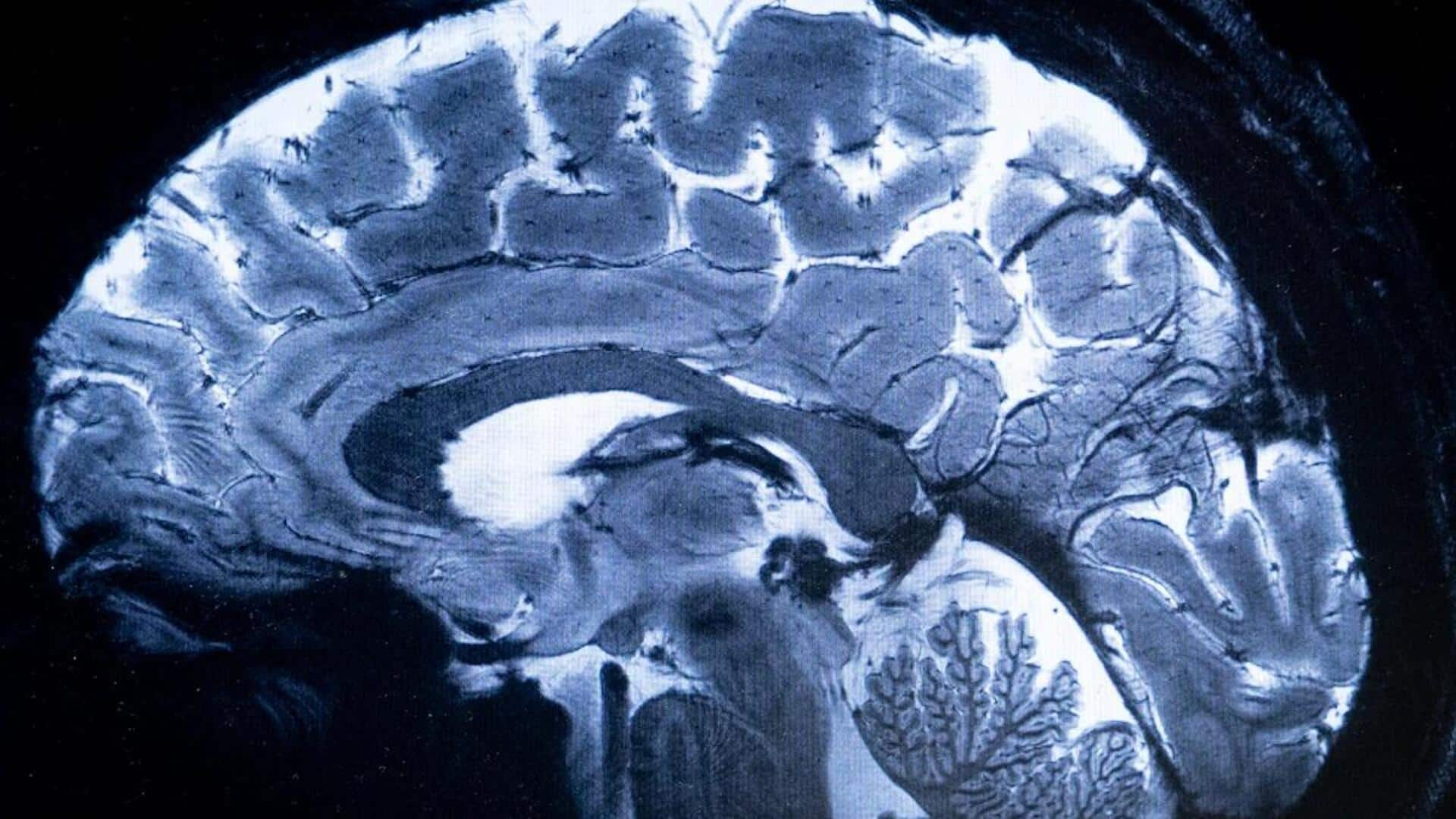
Groundbreaking MRI scanner captures first images of human brain
What's the story
The world's most advanced magnetic resonance imaging (MRI) scanner, known as Iseult, has successfully captured its inaugural images of the human brain. This significant development in medical technology took place in the Plateau de Saclay region, south of Paris. The project is an initiative of France's Atomic Energy Commission (CEA), which initially used Iseult to scan a pumpkin in 2021, before receiving approval for human scans.
Technology
Superior precision revolutionizes MRI scanning
Around 20 healthy individuals have volunteered to be scanned by Iseult, the revolutionary MRI machine that generates an 11.7-tesla magnetic field. This power allows it to capture images with 10 times the precision of conventional MRIs used in hospitals, which typically do not exceed three teslas. "We have seen a level of precision never reached before at CEA," said Alexandre Vignaud, a physicist involved with the project.
Discovery
Iseult reveals previously invisible brain details
Iseult's superior power enables it to visualize minute details previously unseen. "With this machine, we can see the tiny vessels which feed the cerebral cortex, or details of the cerebellum which were almost invisible until now," explained Vignaud. France's Research Minister and physicist Sylvie Retailleau expressed her amazement at Iseult's capabilities, stating that "the precision is hardly believable!"
Development
A two-decade achievement of French and German engineers
Iseult, housed inside a five-meter-long, tall cylinder, contains a 132-ton magnet powered by a coil bearing a current of 1,500 amps. This groundbreaking MRI machine is the result of 20 years of hard work by French and German engineers. While similar projects are underway in the US and South Korea, they have not yet begun scanning human images.
Target
Iseult aims to deepen understanding of brain function
One key goal for Iseult is to deepen our understanding of brain anatomy and function. Nicolas Boulant, the project's Scientific Director, stated that the scanner will help "better understand the relationship between the brain's structure and cognitive functions, for example when we read a book or carry out a mental calculation." The team also hopes that Iseult's power can shed light on neurodegenerative diseases like Parkinson's and Alzheimer's.
Medical research
Iseult to aid in understanding psychological conditions
The team behind Iseult also aims to use its power to shed light on psychological conditions like schizophrenia and depression. CEA researcher Anne-Isabelle Etienvre said, "We know that a particular area of the brain -- the hippocampus -- is implicated in Alzheimer's disease, so we hope to be able to find out how the cells work in this part of the cerebral cortex."